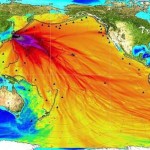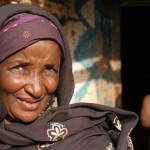Pipelines, exploration to increase annual emissions by 2020, creating giant carbon bootprint.
by Stephen Leahy
Like every other country in the world, Canada has promised to help keep global warming to less than 2 degrees C. However Canada's political and corporate leadership are committed to turning the country into a fossil-fuelled “energy superpower.” With a drug lord's just-providing-a-service hypocrisy Canada has openly declared it's future is tied to the profits from dumping hundreds of millions of tonnes of climate-heating carbon into the atmosphere every year.
And the world's new energy superpower plans to grow those annual emissions to 1.5 billion tonnes by 2020, giving one of the least populated countries a gigantic carbon bootprint.





